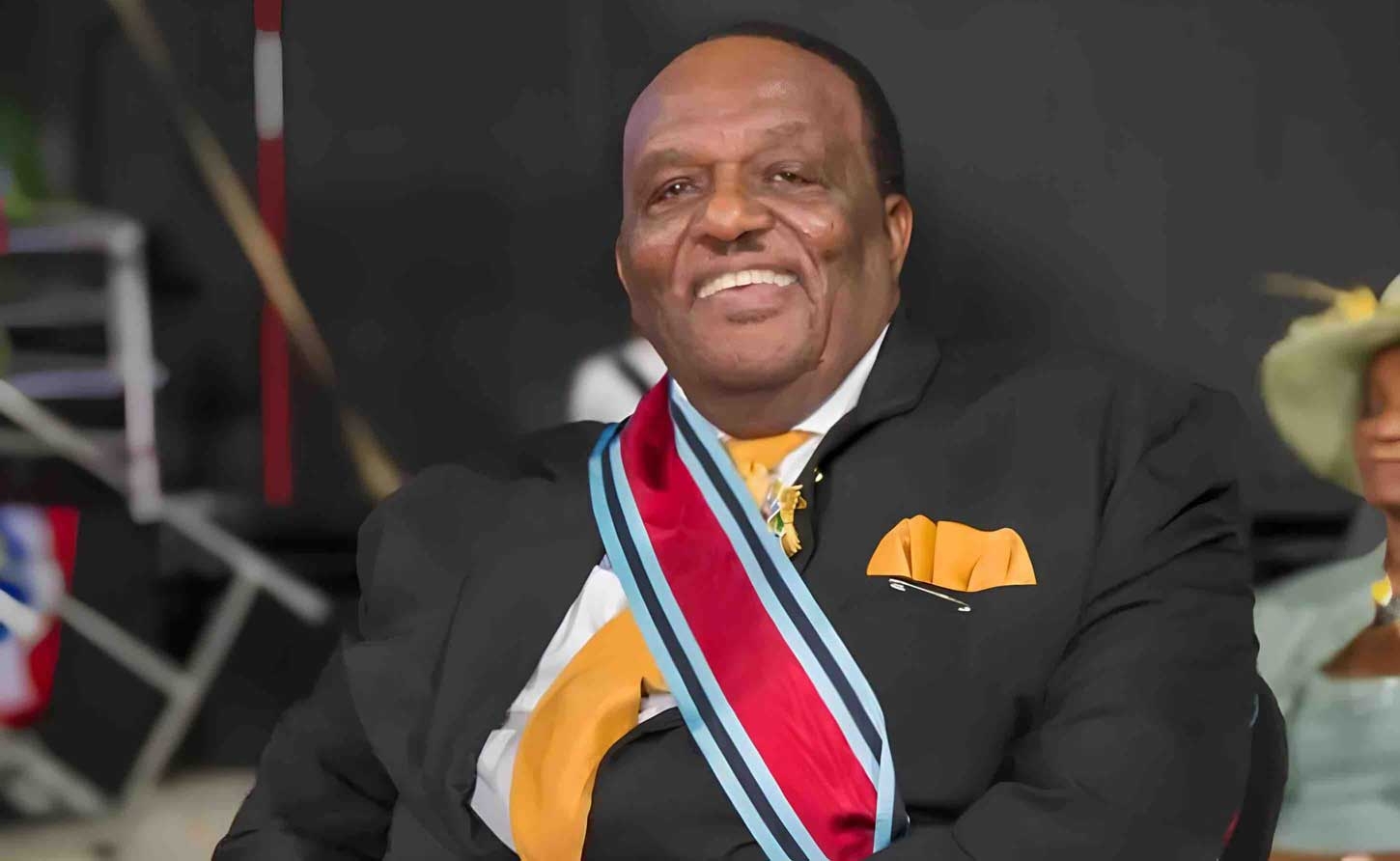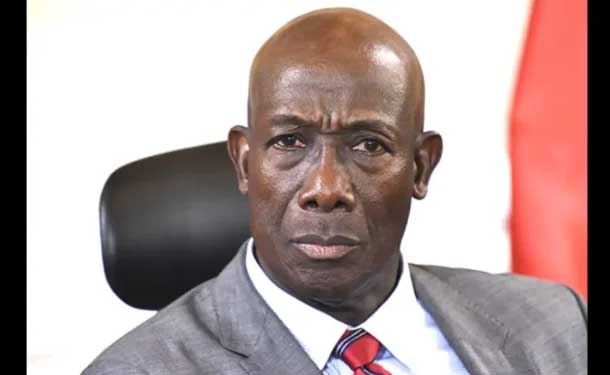TRINIDAD | The Watchlist Mystery: Caribbean Diplomacy Frays as Rowley Incident Exposes Regional Tensions

Antigua's emphatic denial leaves Trinidad scrambling for answers in international embarrassment of former PM
In the theater of Caribbean politics, few performances have been as bewildering as the mystery surrounding Dr. Keith Rowley's airport detention—a diplomatic whodunit that has left officials pointing fingers while a former prime minister's reputation hangs in international limbo.
The plot thickened dramatically on July 22 when Antigua and Barbuda's Attorney General Steadroy "Cutie" Benjamin, in an interview with Newsday, delivered what can only be described as a diplomatic haymaker, categorically denying his government had anything to do with placing Trinidad's former leader on an Interpol watch list.
His words weren't just a denial—they were a verbal guillotine, slicing through any suggestion that Antigua bore responsibility for the embarrassing incident.
"Rubbish! This is stupidness! Absolute rubbish!" Benjamin thundered to Newsday when asked if his government might have flagged Rowley. "Why would my government want to do this to Dr. Rowley? Nonsense! Total nonsense!"
The Incident That Started It All
The drama began innocuously enough—a former prime minister making what should have been a routine transit through V.C. Bird International Airport en route to Montserrat for volcanic research. Instead, Rowley found himself caught in a bureaucratic nightmare, delayed twice during his journey as airport officials grappled with mysterious flags against his name.
What emerged was a story stranger than fiction: a former head of government discovering he was apparently on an international watch list not through official notification, but through the humiliating theater of airport detention.
The man who once commanded respect on regional and international stages was reduced to explaining himself to immigration officers who couldn't understand why their computers were screaming warnings about a volcanologist trying to study lava flows.
 Former Trinidad and Tobago Prime Minister Dr. Keith RowleyTrinidad's Scrambling Response
Former Trinidad and Tobago Prime Minister Dr. Keith RowleyTrinidad's Scrambling Response

Back home in Trinidad, the current administration's response has been a masterclass in damage control—or damage creation, depending on your perspective. Commissioner of Police Allister Guevarro rushed to declare that comprehensive checks of Interpol's databases showed no listing for Rowley, while simultaneously defending the police force's independence and political neutrality.
Prime Minister Kamla Persad-Bissessar took a different tack, essentially telling Rowley he should have called before complaining—as if former prime ministers routinely phone police commissioners to check if they're international fugitives before booking flights.
The responses raise more questions than they answer. If Trinidad's police didn't put Rowley on any list, and Antigua emphatically denies involvement, then who did? And if no one did, why was he detained—twice?
Antigua's Uncomfortable Truth
Benjamin's comments, delivered to Newsday with the bluntness that Caribbean politicians reserve for moments of genuine indignation, paint a picture of a government caught in the crossfire of Trinidad's political warfare.
His assertion that "Dr. Rowley has not misstated anything" provides crucial validation of the former PM's account while simultaneously distancing Antigua from any responsibility.
Perhaps most tellingly, when Newsday asked about bridge-building between the two nations, Benjamin delivered what might be the diplomatic equivalent of a mic drop: "I think any fence-fixing has to be done within TT. We have conducted ourselves properly... So any fence to be mended, has to be done in Trinidad itself."
Translation: This is Trinidad's mess to clean up.
The Regional Ramifications
The incident exposes uncomfortable truths about how Caribbean nations handle political transitions. Here we have a region that prides itself on peaceful democratic handovers, yet a former leader finds himself navigating what appears to be a political vendetta executed through international law enforcement channels.
Benjamin's repeated emphasis that his government "conducted ourselves properly" serves as both shield and sword—protecting Antigua while highlighting Trinidad's apparent impropriety. The subtext is clear: if this can happen to a former prime minister with regional stature, what safeguards exist for ordinary citizens?
The Unanswered Questions
The mystery deepens when considering Interpol's standard response to media inquiries: refer questions to national authorities. But which national authority? Trinidad says they didn't do it. Antigua says they didn't do it. Interpol won't comment directly. Meanwhile, Rowley remains in international limbo, his scientific work potentially compromised by shadows he cannot see or fight.
The timing remains suspicious. A former leader steps down, loses an election, and immediately finds himself flagged on international systems just as he attempts to return to his pre-political career. The coincidence strains credibility to its breaking point.
A Precedent Set
What's most disturbing is the precedent this sets for Caribbean democracy. If former leaders can be placed on international watch lists without transparent legal processes, what stops this from becoming the region's new normal? Benjamin's warning that "any fence to be mended, has to be done in Trinidad itself" suggests he recognizes the broader implications.
The Caribbean is watching, and the silence from those who should have answers speaks louder than any denial. Until someone explains how a former prime minister ends up detained at airports across the region, the question of democratic accountability in the Caribbean remains as mysterious as the volcanic forces Rowley studies.
In this diplomatic eruption, the only certainty is that someone, somewhere, has questions to answer.
-30-
